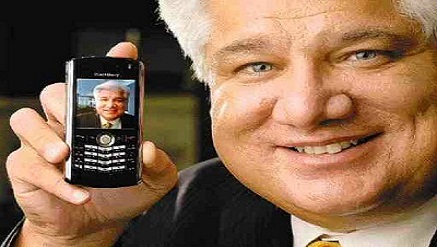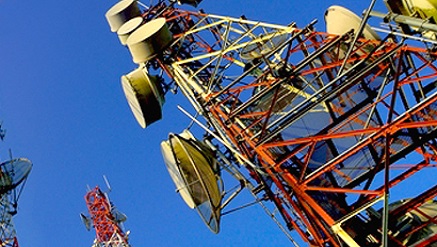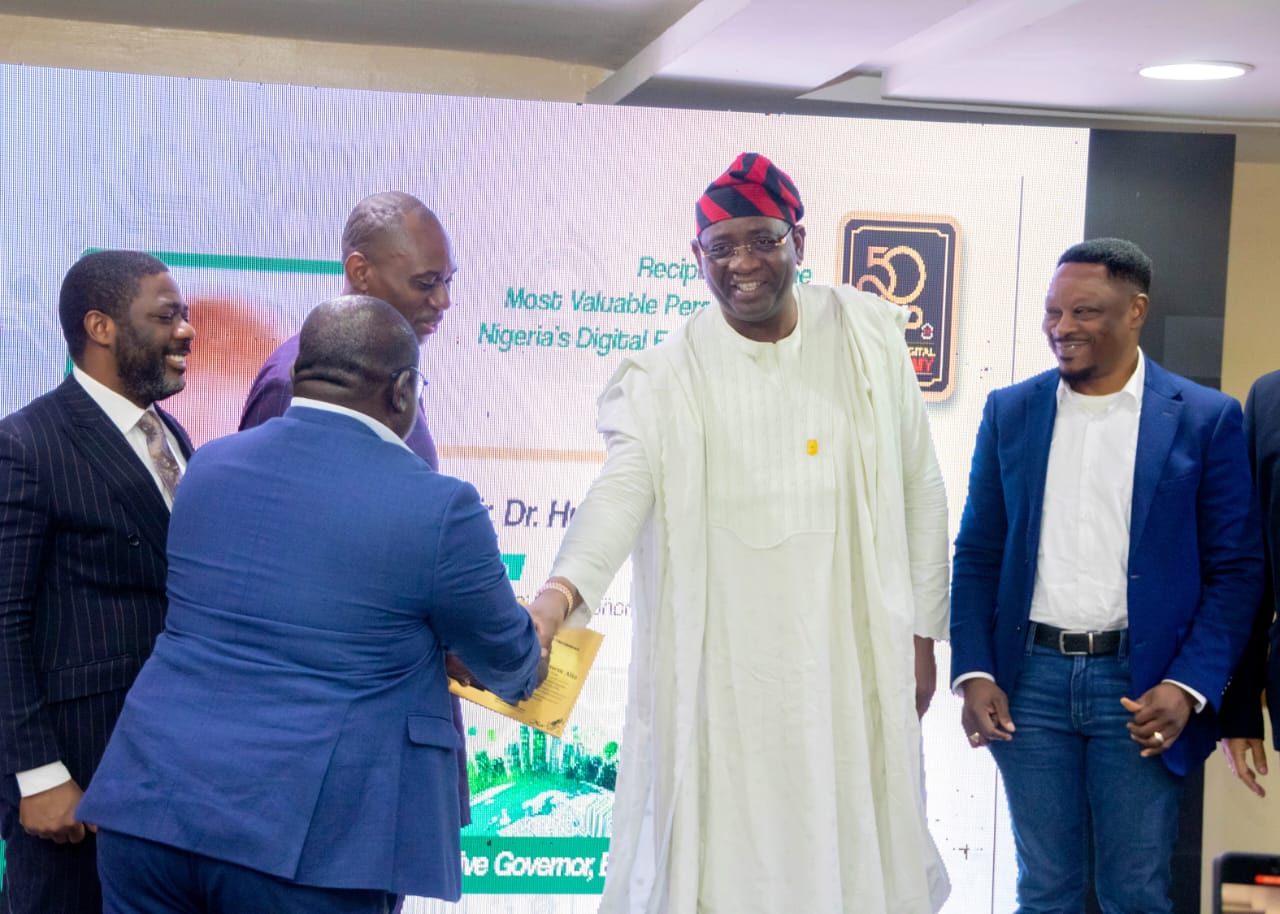Telecom
BlackBerry Becomes First EMM Vendor to Join HP’s Helion Network

BlackBerry has expressed its happiness as the cloud-based enterprise mobility management (EMM) solution, BES12 Cloud, is now certified through the HP Helion Ready Program.
For those customers that want their software solutions to “just run” on HP Helion OpenStack®, they can now select BES12 Cloud as their EMM solution for use with HP Helion OpenStack.
HP Helion OpenStack is based on open source cloud technology, providing many business advantages, from reducing costs through economies of scale and decreasing TCO to avoiding vendor lock-in and preserving workload portability.
It’s also the common architectural foundation for the HP Helion Network, for which BlackBerry is the first EMM vendor.
The HP Helion Network is an ecosystem of service providers, value-added resellers, independent software vendors, and other partners that will collaborate with HP to build, sell and deliver public cloud/virtual private cloud services based on HP Helion technology.
Comprising smaller communities, such as Cloud28+, the HP Helion Network also offers hardware vendors and solution providers both a way to test and certify their products with HP Helion OpenStack and become a part of HP’s expanding partner ecosystem.
The HP Helion Network works collaboratively to meet the needs of customers rather than being owned and operated by any single vendor.
As part of this ecosystem, BlackBerry can offer enterprise customers looking to leverage HP Helion OpenStack real value from their hybrid IT environments.
“BlackBerry’s enterprise portfolio and global presence reinforce HP and the Helion community’s commitment to creating an open ecosystem of leading IT vendors,” said Steve Dietch, vice president, Cloud Go to Market, HP.
“This program allows customers to confidently deploy HP Helion OpenStack in mixed environments with hardware and software solutions that are certified and supported.”
BES12 Cloud makes mobility easy for businesses. BES12 Cloud makes managing devices, apps and data simpler with a cloud-based EMM solution that is secure, flexible and simple to deploy and easy to use.
No matter if customers are using iPhones, Android, Windows or BlackBerry devices, businesses powered by BES12 Cloud are more protected and more productive.
Beyond the core features of BES12, some key benefits of BES12 Cloud include: Ease of Deployment: BES12 Cloud offers 100 percent online registration and purchase process and it only takes minutes from purchase to EMM service availability in the cloud. Cloud subscriptions also include BlackBerry’s award-winning technical support.
Reduced TCO: BES12 Cloud lowers operating costs by eliminating the need for on-premise software, hardware and licenses, while maintaining the same annual subscription pricing as on-premise BES12.
Scalability and Flexibility: BES12 Cloud lets customers rapidly grow their mobile deployments without having to spend heavily on servers and other infrastructure.
Enhanced SIM Based Licensing Compatible – Provides enterprise customers an improved purchasing experience, by supporting the consolidation of operational costs into one monthly invoice from their wireless service partner.
Telecom
FG to Deploy 80 Percent of 7000 Telecom Towers to North

Federal government has unveiled an ambitious plan to deploy 7,000 telecommunications towers across the country, with 80 per cent allocated to Northern Nigeria to address the region’s acute connectivity deficit.

The federal executive council had already approved the 7,000 towers project by March 2025 to support digital transformation and 5G rollout, with formal rollout scheduled to begin in the fourth quarter of 2025.
The project’s first tower will be installed next week in a rural Abuja community of 5,000, where insecurity compounds connectivity challenges.
Unlike conventional masts, these towers will double as digital hubs, providing internet to schools, hospitals, and local government offices.
“Most of these clusters are in the North. That’s the reality. There are a few clusters in the South-West, you know, that are not connected, but the bulk of the clusters are in the North, Bosun Tijani, minister of Communications and Digital Economy, told TVC recently.
He continued, “So, almost 80% of these towers will be going towards filling that gap in the North. The rest will now patch up where we have left off.
“Unlike traditional telecom masts, they will deliver internet to local schools, hospitals, and government offices, maximising their impact. Wherever we put them, we use the same infrastructure to serve the community.”
Tijani highlighted a collaborative model where mobile network operators will connect to the towers’ cables, reducing redundancy and optimising resources.
Nigeria’s digital landscape remains uneven.
As of January 2025, 128.3 million Nigerians, 54.3 per cent of the population, lack internet access, ranking the country fourth globally for unconnected populations.
Broadband penetration stands at 48 per cent, with over 50 per cent of Nigerians living there, facing significant barriers, including unreliable electricity and low digital literacy.
Progress has been made, with the number of people in unserved and underserved areas falling from 36.8 million in 2013 to 23 million in early 2025, yet the connectivity gap remains a formidable challenge.
The 7,000-tower initiative, distinct from the separate Project 774, forms part of a broader strategy that includes satellite technology, such as Starlink, and fibre-optic cables, which Tijani described as the backbone of reliable connectivity in advanced markets.
The government’s focus on the North reflects the region’s disproportionate share of unconnected communities, while the project’s design aims to address both digital and security challenges.
Telecom
Engr. Ikechukwu Nnamani Receives Two Prestigious @ABoICT Awards

Engr. Ikechukwu Nnamani, CEO of Digital Realty, West Africa’s leading interconnected data center facility, has been recognized for his outstanding contributions to Nigeria’s digital economy and the broader African ICT landscape.

L-R: Mr. Ken Nwogbo, Publisher and Editor-in-Chief of CommunicationsWeek Media, Editor Engr. Ikechukwu Nnamani, CEO of Digital Realty and Dr. Muhammed Rudman, Chief Executive Officer, Internet Exchange Point of Nigeria (IXPN) at the 2025 Africa’s Beacon of ICT (ABoICT) Merit and Leadership Awards, organized by Communications Week media.
At a ceremony in Lagos, Nnamani was named among the Top 50 Most Valuable Personalities in Nigeria’s Digital Economy by KnowHow Media.
According to the organizers, this recognition reflects his unwavering commitment to innovation within Africa’s tech ecosystem.
Segun Oruame, Vice-Chairman of KnowHow Media, emphasized Nnamani’s significant impact on Nigeria’s ICT landscape, highlighting his role in advancing the country’s digital economy.
Adding to his accolades, Nnamani was also honored with the ICT Growth Impact Award in Data Centre Infrastructure at Africa’s Beacon of ICT (ABoICT) Merit and Leadership Awards, hosted by Nigeria Communications Week.
This award acknowledges his instrumental role in developing telecom and ICT infrastructure across multiple African nations, including Ghana, Togo, Liberia, Sierra Leone, Ivory Coast, Senegal, Kenya, Uganda, and Angola.
Expressing gratitude for the recognitions, Nnamani dedicated the awards to his team at Digital Realty, acknowledging their continuous support.
He reaffirmed his commitment to fostering industry growth and driving innovation across Africa.
Telecom
SBTS Group CEO Evelyn Lewis Named Among Nigeria’s Top 50 Digital Economy Leaders for Youth-Focused Tech Initiatives

Evelyn A. Lewis, CEO of SBTS Group, has been named one of Nigeria’s “50 Most Valuable Personalities in the Digital Economy” by IT Edge News.Africa, recognizing his visionary leadership in digital transformation, innovation, and youth empowerment.

Presented during the “Nigeria: State of the Digital Economy 2025” colloquium and awards ceremony in Lagos, the recognition highlights Lewis’s role in shaping Nigeria’s digital future. The high-profile event, organized by Knowhow Media (publishers of IT Edge News.Africa), brought together top policymakers, digital innovators, and ecosystem enablers across public and private sectors.
At the center of Lewis’s recognition is his commitment to building Africa’s digital economy through skills and job creation. Under his leadership, SBTS Group—in collaboration with the Digital Bridge Institute (DBI)—is implementing an ambitious plan to:
- Train 5 million Nigerian youths
- Create 50,000 digital jobs by 2030
This initiative aligns with Nigeria’s National Digital Economy Policy and Strategy (NDEPS) and the Federal Government’s 3 Million Technical Talent (3MTT) program.
SBTS Group’s proprietary Intelligent Capacity Building Model (ICBM), developed under Lewis’s leadership, is at the core of this effort. The model closes the gap between digital training and employment, offering career-focused tracks in:
- Cybersecurity
- Software Development
- Artificial Intelligence (AI)
- Business Process Outsourcing (BPO)
- Digital Entrepreneurship
ICBM is currently being rolled out across DBI campuses nationwide, forming a scalable framework for skills development.
SBTS and DBI will kick off the next phase of their national rollout with new training and BPO centres in Abuja and Enugu, scheduled for launch in June 2025. These centers are expected to create over 5,000 jobs in their first phase, acting as blueprints for replicable, sustainable digital employment hubs nationwide.
Beyond training, SBTS has also built a national unified digital learning and registration platform for DBI. The system integrates national identity tools such as NIN and BVN, supports student sponsorships, facilitates enterprise partnerships, and enables career tracking—laying a foundation for a data-driven, transparent digital skills ecosystem.
“This award reaffirms our commitment to building Africa’s digital economy from within,” said Evelyn Lewis. “At SBTS Group, we believe that human capital is Africa’s greatest asset. By empowering our youth, we’re investing in a future where Africa leads in innovation and competitiveness.”
The 50 Most Valuable Personalities (50MVPs) initiative annually celebrates visionary leaders accelerating Nigeria’s digital transformation. The 2025 edition recognized contributors across tech, governance, and entrepreneurship under the theme:
“Accelerating Nigeria’s Digital Transformation: Insights on Challenges and Emerging Opportunities.”
Other 2025 honourees include:
- Obadare Peter Adewale, CVO, Digital Encode
- Nentawe Yilwatda, Minister of Humanitarian Affairs & Poverty Reduction
- Ayọ̀wándé Àdalémọ, CEO, Wave5Wireless
- Krishnan Ranganath, Regional Executive, West Africa & Morocco – Africa Data Centres (ADC)
- Ike Nnamani, CEO, Digital Realty
- Daser David, President/CEO, Digital Bridge Institute
- Suleiman Isah, Commissioner for Communications Technology & Digital Economy
- Shuaibu Kabir Bello, CEO, KMDC
- Olawole Owoeye, Co-founder, Cedarview Communications

 Telecom2 days ago
Telecom2 days agoTelecom Subscribers Decline By 43m in One Year

 E-Business2 days ago
E-Business2 days agoNigeria Launches Cybercrime Team with Commonwealth, UK Support

 E-Financial2 days ago
E-Financial2 days agoSERAP Drags CBN to Court over Alleged Failure to Disclose LG Allocations

 Telecom2 days ago
Telecom2 days agoNCC Orders Telcos to Compensate Subscribers for Outages More than 24 Hours

 General News2 days ago
General News2 days agoHEDA Sues FG, Oil Giants over Alleged Unlawful Oil Licence Transfer

 Telecom2 days ago
Telecom2 days agoIHS Nigeria, NSCDC Partner to Protect Telecoms Infrastructure

 Telecom21 hours ago
Telecom21 hours agoEngr. Ikechukwu Nnamani Receives Two Prestigious @ABoICT Awards

 E-Financial21 hours ago
E-Financial21 hours agoEFCC Recovers over N20Bn Stolen by Hackers from 6 Banks in Nigeria



























